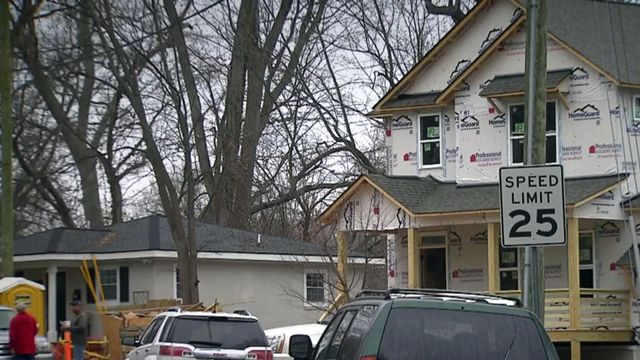Leader of Raleigh community groups 'blindsided' by decision to dissolve them
After more than 40 years of providing community input to Raleigh leaders, the citizen advisory councils will soon be disbanded.
Posted — UpdatedChristina Jones, chairwoman of the Raleigh Citizens Advisory Council, which oversees the 18 CACs that represent different areas of the city, said she was "blindsided" by the council's move, which came with no advance notice.
"We were not included in the conversation," Jones said. "It was a shock, and it was hurtful when no one asked us anything."
The CACs meet monthly to review all rezoning requests and act as a conduit for information between city departments and residents. Anybody can attend the meetings and discuss any community concerns.
"For them to disband the CACs without any public comment, quite frankly, is shameful," said Bruce Lightner, whose late father, former Mayor Clarence Lightner, started the advisory councils in 1974.
"It was an important part of his legacy, and for them to disband the CACs without having anything to replace it is troublesome," Lightner said.
Mayor Mary-Ann Baldwin said Raleigh has tried three times in recent years to reform the advisory councils, but all failed.
"The real goal here is to make citizen and resident engagement the best it can be," Baldwin said. "We know we can do better. We know we must do better."
A community survey last year showed that more than 74 percent of Raleigh residents polled said they had never attended a CAC meeting.
"Every CAC meeting I've ever attended has been well attended – been over 30 people and with lively discussions," Lightner said.
Councilman David Cox, who voted against ending the CACs, said the move will disenfranchise some communities. He said he's angry the council took action with no advance notice, and he got into a heated exchange with Baldwin over that issue during Tuesday's council meeting.
"It was how it was done," Jones said. "It was the exclusion [of CACs]."
The CACs will continue to operate for 45 days to wrap up pending rezoning hearings, but all other city support – each group gets a $1,000 annual stipend from the city – ended Tuesday.
"This is our passion – citizen engagement. It's what we've been doing for nearly 50 years," Jones said.
Related Topics
• Credits
Copyright 2024 by Capitol Broadcasting Company. All rights reserved. This material may not be published, broadcast, rewritten or redistributed.






